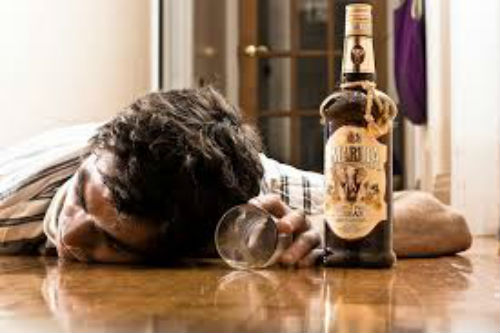If you’re looking for a natural and affordable treatment approach for binge drinking, you may consider hypnosis for alcohol addiction. Results may not be noticeable overnight, and the sessions needed may vary from individual to individual, but it’s an approach that researchers have seen working effectively.
Alcohol Use Prevalence:
According to statistics, alcohol is among the most commonly abused substances. Studies have shown that 5.4% of all Australians (including 14-year-olds) take alcohol daily in Australia. In the United States, more than 14 million people (some as young as 12) had AUD (Alcohol Use Disorder) as of 2019.
Are you drinking excessively?
What does “excessive drinking ” look like? According to experts, if you consume 15 or more alcoholic beverages per week (for men) or 8 or more alcoholic drinks per week (for women), you may be called a heavy drinker.
On the other hand, binge drinking by definition is the consumption of four or more alcoholic drinks in one sitting or event (for women) or five or more drinks in one sitting or occasion (for men). Not everyone who binges drinks or drinks excessively is dependent or addicted to alcohol. To establish an unhealthy attachment to alcohol, you don’t have to be a heavy or binge drinker.
Other signs that you may be drinking too much or have an unhealthy attachment with alcohol include:
- You drink to overcome various negative emotions like fear, anxiety, stress, sadness, etc.
- You can’t function without a drink or two.
- You have a hangover every morning or most mornings.

- Overdrinking/consuming more than you had planned.
- You are neglecting your work and family responsibilities because of drinking.
- You are drinking to get rid of a hangover or deal with withdrawal symptoms such as anxiety, tremors, loss of appetite, nausea, and jitteriness.
Are you addicted or dependent on alcohol?
While the indicators of addiction or dependence vary from person to person, if drinking is more important to you than your career, family, or other responsibilities, you may be hooked or on the verge of being addicted. You may also be addicted if you can’t function or handle your day-to-day tasks, including work, without first taking a drink. As the effects of alcohol begin to wear off, you may feel significant symptoms such as shaking, anxiety, jumpiness, and others.
The dangers of excessive alcohol intake:
Excessive intake has negative health consequences, some of which can be fatal. In Australia, alcohol was directly or indirectly responsible for about 6,000 deaths in 2015, while in the United States, alcohol was responsible for around 93,000 deaths between 2011 and 2015.
Excessive drinking can lead to a variety of health problems, including:
- Heart failure
- Stroke
- Heart attack
- High blood pressure
- Premature delivery(for women)
- Low libido
- Infertility
- Low immunity
- Liver cirrhosis
- Liver cancer and other cancers
Alcohol dependency is treatable!
Alcohol dependency is a treatable disorder to any degree, and preventing recurrence is also highly doable with the correct kind of treatment and support. Of course, regardless of the treatment method utilized, including hypnosis for alcohol addiction, early intervention is critical to the recovery process. According to many research findings, light to moderate addiction is easier to treat than severe addiction. Even yet, persons with serious addictions can recover, albeit it may take longer and require more complex techniques.
Hypnosis For Alcohol Addiction – The Richards Trauma Process
The Richards Trauma Process is a natural approach that focuses on curing alcohol addiction and dependence at their source. Many persons battling addiction or dependence have an underlying issue – a stressor of some kind that must be effectively dealt with to unlearn or control their behavior.
Many stressors are subconscious, which means you or anyone else suffering from addiction or dependence isn’t aware of the triggers or stressors. Poor life satisfaction, prior trauma, low self-esteem, fear, sadness, anxiety, and other stressors are most common.
The Richards Trauma Process, frequently paired with hypnotherapy, tries to discover and eliminate/control these subconscious or conscious triggers or stresses.
What’s so special about the Richards Trauma Process?
Several things make the Richards Trauma Process “special” or “better” than other addiction, and dependence treatment approaches. For starters, it helps in identifying and resolving underlying issues without re-traumatizing the client.
Secondly, it’s a straightforward procedure that gets results rapidly – usually in just three sessions. It’s also relatively safe, and any adverse effects, which are typically minor and rare, go away on their own without the need for medication.
So, once you understand your triggers or underlying causes of your addiction or dependence, what next?
Your therapist then applies various technologies, such as creative visualization and direct suggestion, to help you manage your triggers or react to them differently. That way, when the urge or thought to drink hits, you can overcome it without alcohol.
Need Help from a Professional Hypnotherapist?
If you’d like to use hypnotherapy or hypnosis to help manage or eliminate your drinking urge, don’t hesitate to contact us here. A professional hypnotherapist will gladly take you under their wing and preserve your privacy at all times.


